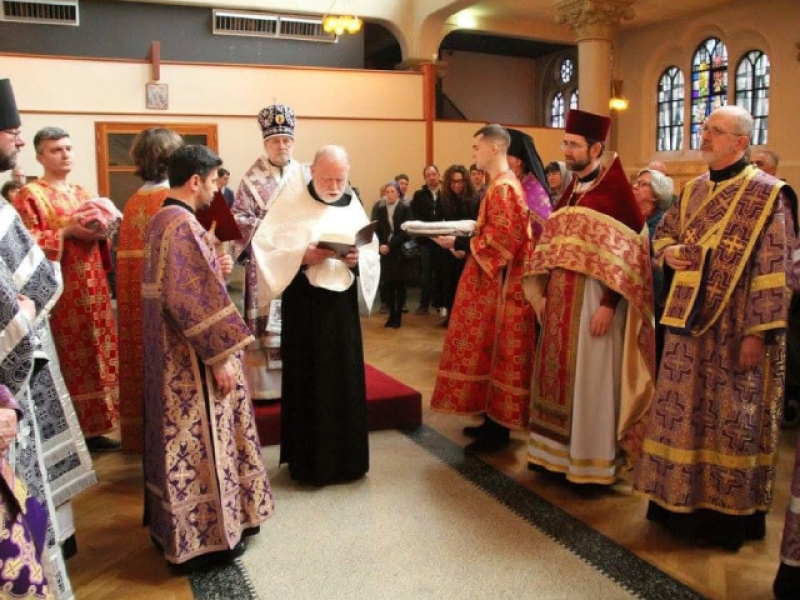
Various church leaders are pressuring the World Council of Churches to remove the Russian Orthodox Church from its membership in line with Patriarch Kirill's support of Russian President Vladimir Putin's political agenda.
The National Catholic Reporter said that various church leaders allege Patriarch Kirill's support of Putin's Ukrainian invasion invalidated the Russian Orthodox Church's membership. The media outlet reported that the World Council of Churches Acting General Secretary Fr. Ioan Sauca responded on the matter last week during an interview conducted by the WCC News.
The World Council of Churches, comprised of 352 member churches globally, was established to inspire unity, justice, and peace among 580 million Christians under its umbrella.
In the interview, WCC News asked Sauca about the issue to expel Kirill and whether the council would actually do this. Sauca was also asked what possibilities could hinder WCC from doing so. Sauca then responded by clarifying that the authority to remove a member rests not in his office but in WCC's governing body, which is the central committee.
Sauca then pointed out three areas stipulated in the WCC Constitution--Rule I,6--for member suspension. A member is suspended upon the member's request, when the church does not maintain the theological criteria for membership, and when the church persistently neglects its membership responsibilities. The central council decides on the suspension only after it has exhausted a process of discernment, dialogue, debates, and hearings with the church concerned.
Sauca stressed that, in his capacity as the organization's acting secretary, he has already condemned Putin's aggression on Ukraine. He cited that he has even supported Ukrainian Orthodox Church Metropolitan Onuphry by calling the invasion a "fratricidal war." This is on top of writing Kirill to call the two presidents to end the war. Sauca highlighted that removing Kirill would defy the purpose of the council, which is to enhance ecumenical dialogue.
"We all feel hopeless, angry, frustrated, disappointed-and humanly and emotionally tend to go towards immediate radical decisions," Sauca said.
"It would be very easy to use the language of the politicians but we are called to use the language of faith, of our faith. It is easy to exclude, excommunicate, demonize; but we are called as WCC to use a free and safe platform of encounter and dialogue, to meet and listen to one another even if and when we disagree," he added.
Sauca expressed his belief in the power of dialogue in achieving reconciliation. The acting secretary underscored the need to understand the roots and causes of conflicts that would only be attained through dialogue, which allows a process of listening to both victim and perpetrator.
On Tuesday, Sauca has once more urged Kirill in a letter to intervene in the war in the light of the Resurrection service. Sauca raised that they received information on plans to attack churches during Easter night. He told Kirill that he has tried to talk to both leaders about a ceasefire but to no avail.
"I am aware that it is not in your power and authority to stop the war or to influence those who have such powers of decisions. But the faithful are waiting for a comforting word from Your Holiness. They think that if you come out with a public statement and request, as the spiritual father of so many millions of Orthodox in both Russia and Ukraine, that might have an impact," Sauca told Kirill.
Previously, Sauca told Kirill in his first letter regarding the receipt of numerous letters pushing him to reach out to the patriarch to mediate in the war so that suffering would be ended.
Other Christian leaders such as Polish Archbishop Stanislaw Gadecki of Poznan, president of the Polish Bishops Conference, have similarly pleaded with Kirill in March to urge Putin and the Russian military to stop the senseless and unjust war.
In the same month, Czech Pastor Pavel Cerny wrote an editorial insisting that the Russian Orthodox Church has long been on a path of false religious nationalism and must not be allowed to continue its membership with WCC. Cerny's editorial was followed two days later by Washington, D.C.-based Evangelical Pastor, Rev. Rob Schenck, in a Religion News Service editorial that urged WCC to sanction Kirill, whom he referred to as Putin's propaganda tool.
Notwithstanding all the clamor against him, Kirill has remained firm in his convictions and has even blamed the war as a result of the relationship between Russia and the West.





















